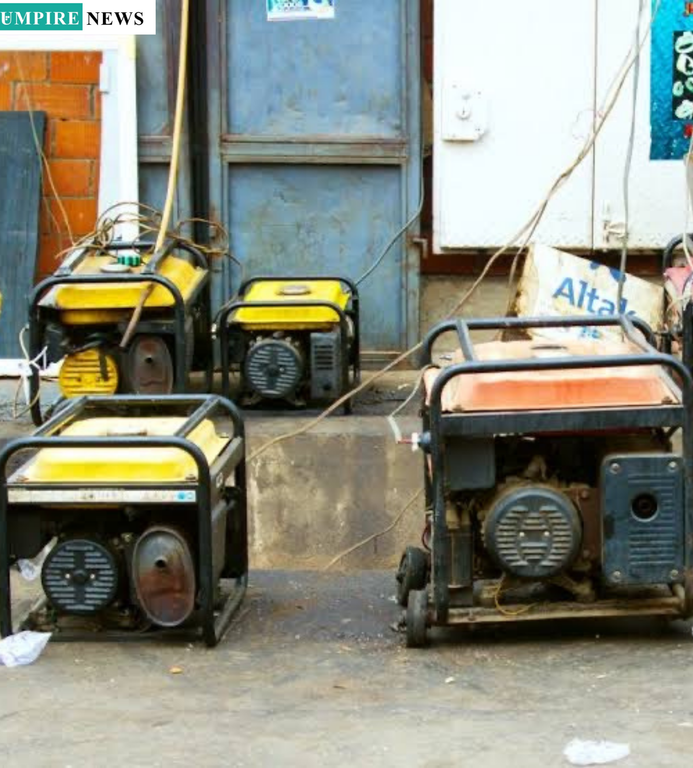Nigerians spend an astonishing $10 billion annually on petrol and generator maintenance, a figure revealed in a recent report by Sustainable Energy for All (SEforALL).
This massive expenditure highlights the country’s heavy reliance on fossil fuels for power generation, despite the financial and environmental costs involved.
The report, released in collaboration with the Lagos State Government, underscores the negative impact of this dependency on both the economy and the environment, emphasizing the urgent need for a shift toward cleaner and more sustainable energy solutions.
According to the report titled “Beyond Gensets: Advancing the Energy Transition in Lagos State,” Nigerians, particularly households and businesses, are burdened by the high cost of fuel and generator (genset) maintenance.
SEforALL highlighted that “Nigerians reportedly spend $10 billion (N7.6 trillion) annually on fuel and maintenance for small petrol genset.”

This hefty expense is one of the key financial strains affecting the country’s economic growth, hindering the progress of both small and medium enterprises (SMEs) and larger industries.
The report revealed that the average small business in Nigeria, the continent’s largest economy, spends between N20,000 and N40,000 monthly solely on fuel.
These high energy costs are the largest operational expense for many SMEs, particularly those that are heavily reliant on generators due to the country’s unreliable electricity grid.
SEforALL pointed out that, “This is the largest cost to many small and medium enterprises (SMEs) in their operations,” further illustrating the economic strain on businesses across the nation.
Nigeria’s energy sector has long been plagued by chronic inefficiencies, with the national power grid consistently failing to meet demand.
This has forced millions of Nigerians, both in residential and commercial sectors, to rely on generators for electricity.
Despite having an installed grid capacity of 13,014.14 megawatts (MW), the grid frequently operates well below its potential due to underinvestment, maintenance issues, and inefficiencies, resulting in power outages and an inconsistent supply of electricity.

As a result, Nigerians have been left with no choice but to turn to self-generated power, primarily through petrol and diesel generators.
According to SEforALL, the cost of electricity generated from petrol-powered generators is higher than grid electricity, with the report stating that “the cost of electricity for petrol generators is 83 percent higher than the cost of electricity from the grid.”
This pricing discrepancy places additional pressure on households and businesses that already struggle with rising energy costs and fluctuating fuel prices.
In addition to the economic toll, Nigeria’s reliance on generators has also resulted in alarming environmental consequences, particularly in Lagos State, which has one of the highest concentrations of generator use.
SEforALL noted that Lagos State’s dependency on diesel-powered generators has contributed to substantial carbon emissions, with an estimated 39 million tonnes of CO2 equivalent (tCO2e) being released into the atmosphere annually.
This figure exceeds the combined emissions of several African countries, including Rwanda, Gabon, and Togo. The report highlights the severity of the environmental damage, stating that “together, these emissions amount to 39 million tonnes of CO2, a staggering figure when compared to emissions from other nations.”
Breaking down the emissions further, the report revealed that Lagos’ residential sector alone contributes 21 million tonnes of CO2 annually.
The commercial sector follows closely with 17.8 million tonnes, while emissions from markets add a further 141,125 tonnes. In comparison, Togo emits approximately 9.8 million tonnes of CO2 annually, Rwanda 10.6 million tonnes, and Gabon 10.2 million tonnes.
These figures place Lagos State at the forefront of Nigeria’s energy and environmental challenges, with its reliance on gensets exacerbating the city’s contribution to global emissions.
The report also sheds light on the vast genset capacity in Lagos State, which is estimated to be around 19 gigawatts (GW), far exceeding the national grid’s installed capacity of 12.2 GW.
This heavy dependence on gensets is a direct consequence of Nigeria’s unreliable electricity grid, which has failed to meet the needs of its growing population and industries.
The environmental toll of this dependency is immense, as the widespread use of diesel and petrol generators has led to the release of harmful pollutants into the atmosphere, worsening air quality and contributing to climate change.
Air pollution, which has become an issue in Nigeria, poses a serious health risk. The World Health Organization (WHO) identifies air pollution as one of the leading environmental risk factors globally, responsible for millions of deaths each year.
SEforALL’s report emphasizes the importance of transitioning to cleaner energy sources, particularly for cities like Lagos, which are heavily reliant on generators for power.
In response to the report, Biodun Ogunleye, the Commissioner of Energy and Mineral Resources for Lagos State, stressed the need for Lagos to lead the charge in Nigeria’s energy transition. He emphasized that the city is taking decisive action to reduce its reliance on diesel and petrol generators.
Ogunleye stated, “By understanding and working to mitigate the impacts of diesel and petrol generator sets, we are taking decisive steps toward a cleaner, more sustainable energy future for Lagos and Nigeria as a nation.”
The report calls for a concerted effort to address Nigeria’s energy crisis by investing in renewable energy sources, improving grid infrastructure, and reducing the country’s dependency on fossil fuels.
The transition to cleaner energy is critical not only for reducing the economic burden on households and businesses but also for mitigating the environmental impact of Nigeria’s current energy practices.
The $10 billion annual expenditure on petrol and generator maintenance in Nigeria is a clear indicator of the urgent need for energy reform. The combined economic and environmental costs of relying on fossil fuels for electricity generation have reached unsustainable levels.
As Nigeria continues to grapple with its energy challenges, the call for a shift toward renewable energy and sustainable practices has never been more pressing.































